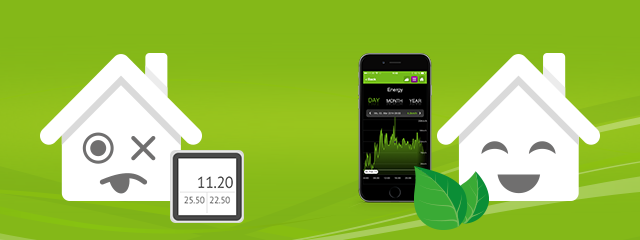
Smart Meters: Not So Smart After All
There’s just one year to go before the nationwide roll-out of smart meters begins, and the appeal of no longer having to crawl about under the stairs with a torch to read the meter is undeniable. However, are smart meters really as smart as they claim?
Just a little while ago, the BBC reported that smart meters will only save consumers around 2% on their energy bills.
This saving is by no means guaranteed, either. In fact, the idea behind smart meters is that by seeing how much energy you’re using, you’ll be encouraged to become more energy efficient. The entire ‘energy saving’ aspect of smart meters relies on the consumer changing their habits: remembering to switch off lights, turning off devices on standby and so on – which, when you think about it, is hardly smart at all. Anyone with kids will know just how difficult it can be to constantly check if lights are off throughout the house. Perhaps, more accurately, a smart meter should be called an ‘energy meter with remote display‘!
In the report, the Public Accounts Committee (PAC) revealed that on average, consumers will save just £26 a year with their smart meters, after installation costs. Furthermore, the technology that is being developed for smart meters could be outdated by the time the roll-out process is completed.
So why are we still going ahead?
Well, the utility companies will no longer need to come in to read the meter, instead, their engineers only need to walk up to the front of your house and obtain the reading wirelessly – saving them money and time, at your expense! (Sneaky!)
Smart Home vs. Smart Meter
If all we wanted was an energy display, it would probably be more convenient to just use our smart phone. In fact, smart phones are now so much a part of UK life, that almost three quarters of us have one. But even being able to read the meter on our smart phone does not make the meter smart. The key to putting the “smart” back into smart metering and saving money is to look at the bigger picture and how the meter can integrate with things around the home.
Smart metering shouldn’t rely on you providing the brains. No-one should have to be an eco-warrior, dressed in three woolly jumpers, crusading about the house, turning off every light and killing the power to anything on standby.
Instead, you should be able to put your feet up and let the energy savings roll in- whether it’s lights that switch off automatically when you leave a room, or heating that knows exactly when to come on in each room, and at what temperature, so you avoid wasting energy.
Things to consider
There are several ways to make the most of your energy and start making your home truly energy efficient. These include:
- Optimising your self-consumption if you have PV panels
- Switching your heating on and off remotely
- Turning off lights automatically when you leave the room
- Lowering the heating automatically when you open a window
- Setting up a holiday mode: A triple click of the switch by the front door could turn the lights off, put the heating into frost protection and arm the alarm.
In a Loxone Smart Home, you could uncover potential energy savings by monitoring the areas where you’re consuming the most energy. You wouldn’t even have to think about it either, since the Miniserver has all the tasks taken care of automatically, allowing you to focus on the more important things in life.
If you’re planning a smart home project, and would like to discuss how a Loxone Smart Home can help save you money and energy, why not request a free project consultation with a member of our friendly project planning team?
